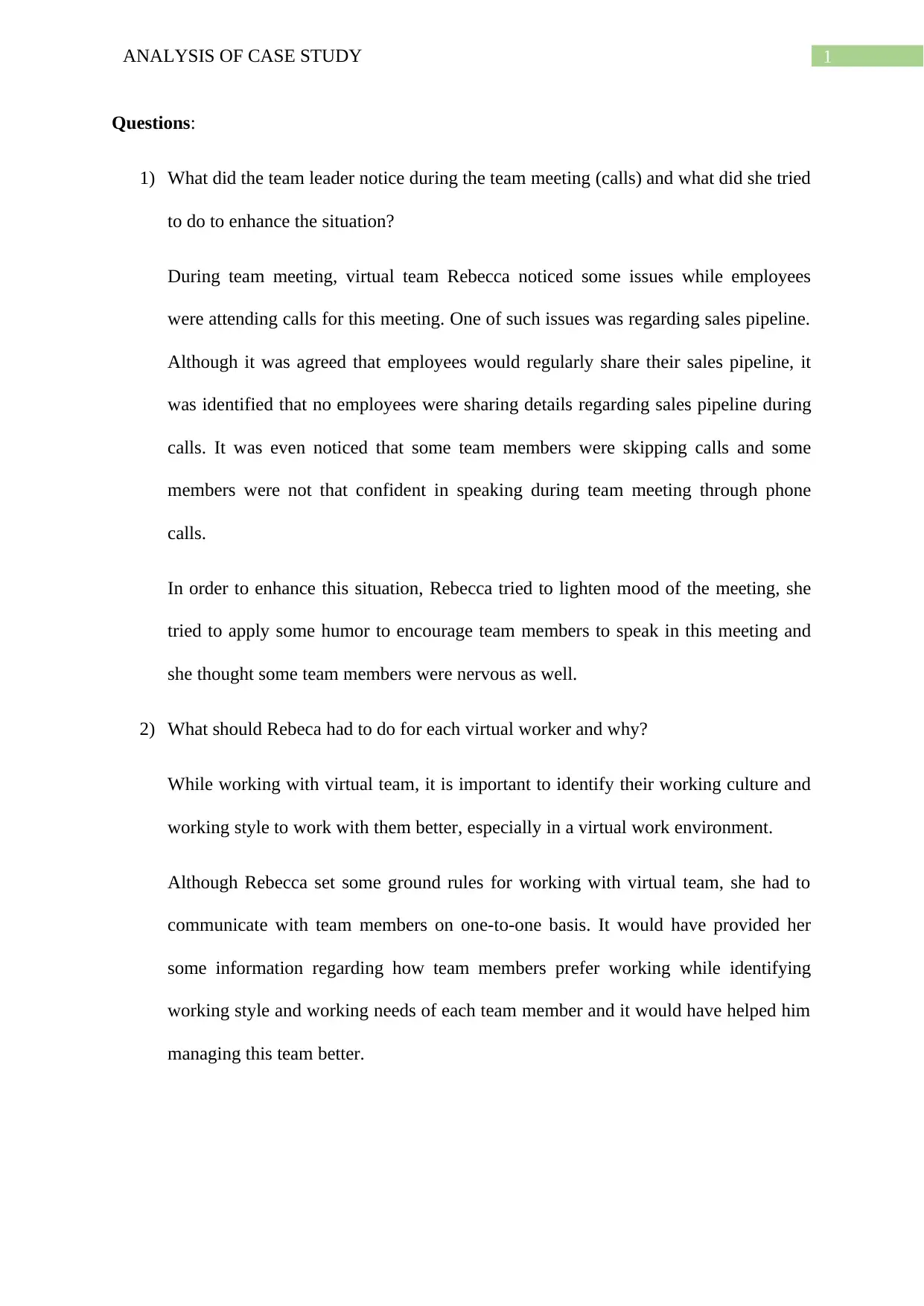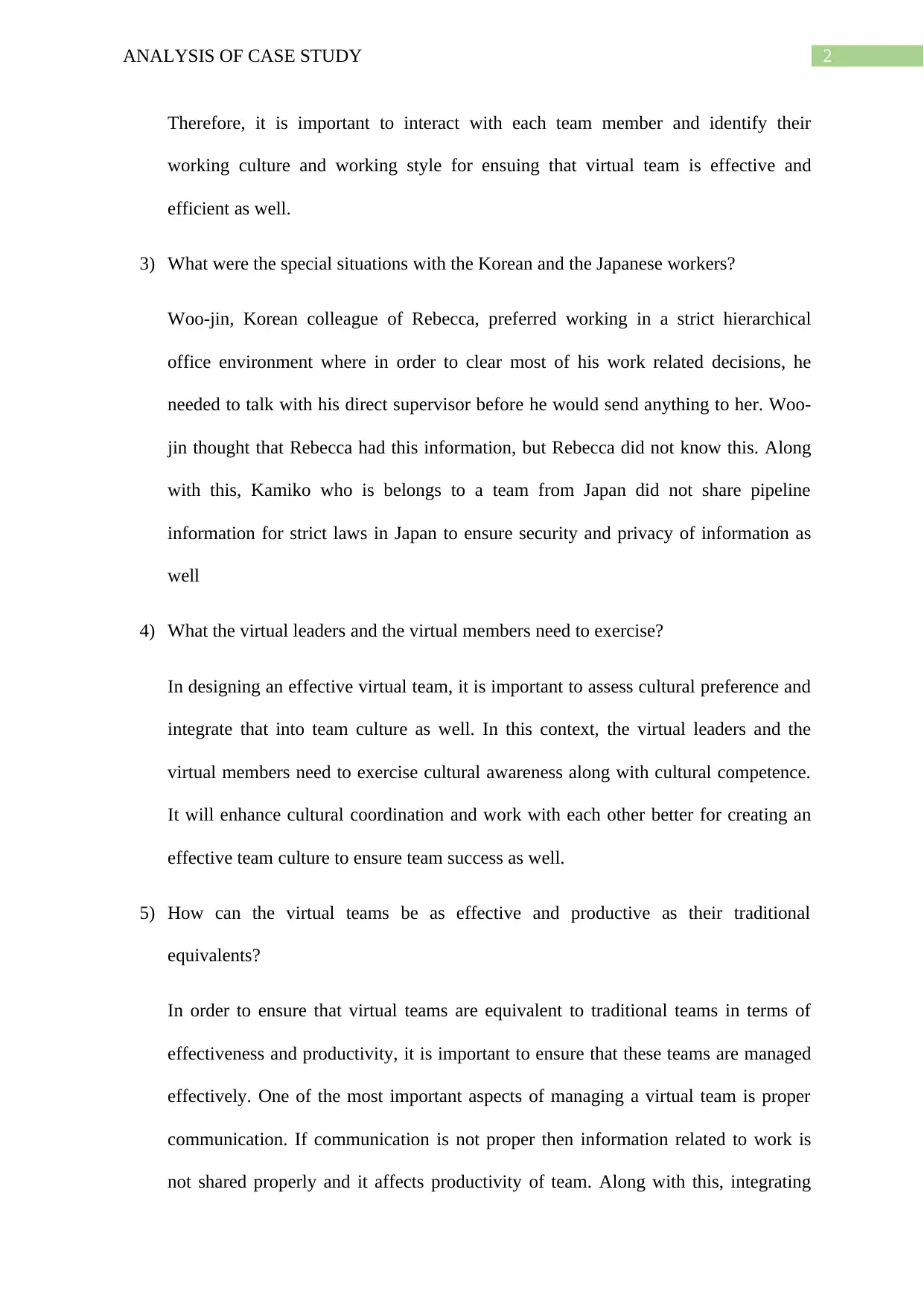Case Study Analysis: Virtual Team Management and Leadership Challenges
VerifiedAdded on 2022/08/26
|4
|615
|19
Case Study
AI Summary
This case study analyzes the challenges faced by a team leader, Rebecca, in managing a virtual team. The analysis addresses issues such as lack of communication regarding sales pipelines, team member absenteeism, and cultural differences among team members, specifically highlighting the hierarchical preferences of a Korean colleague and the data privacy concerns of a Japanese colleague. The analysis emphasizes the importance of effective communication, cultural awareness, and tailoring team strategies to individual working styles and cultural preferences to enhance team effectiveness and productivity. The analysis also explores the need for virtual leaders and members to exercise cultural competence and coordination to create a successful team culture. The case study provides practical insights into managing diverse and dispersed teams in a globalized business environment, focusing on leadership strategies and communication techniques to overcome challenges and achieve team goals.
1 out of 4










![[object Object]](/_next/static/media/star-bottom.7253800d.svg)